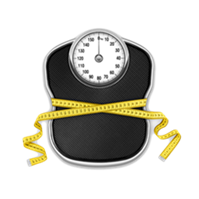Weight loss can have a significant impact on the overall health and well-being of the body. Losing weight can lead to a variety of positive changes, such as improved cardiovascular health, increased energy levels, and improved self-esteem.
One of the most obvious changes that occur in the body as a result of weight loss is a reduction in body fat. As the body loses weight, it reduces the amount of fat stored in the body, which can lead to a decrease in the risk of obesity-related health problems such as diabetes, heart disease, and certain cancers.
Weight loss can also have a positive impact on cardiovascular health. As the body loses weight, the heart does not have to work as hard to pump blood throughout the body, which can lead to a decrease in blood pressure and a reduction in the risk of heart disease. Additionally, weight loss can lead to a reduction in inflammation, which is a contributing factor to a variety of health problems.
Weight loss can also lead to improved energy levels. As the body loses weight, it becomes more efficient at using energy, which can lead to increased energy levels and improved physical endurance.
Weight loss can also have a positive impact on mental health. Losing weight can lead to improved self-esteem and confidence and can also reduce the risk of depression and anxiety.
It’s important to note that weight loss can also have negative effects on the body if it is not done in a healthy and sustainable way. Crash diets or rapid weight loss can lead to muscle loss, fatigue, and nutrient deficiencies, and can also slow down the metabolism. Additionally, if weight is lost too quickly, it can result in loose or saggy skin.
In summary, weight loss can have a significant impact on the overall health and well-being of the body. Losing weight can lead to a variety of positive changes such as improved cardiovascular health, increased energy levels, and improved self-esteem. However, it’s important to remember that weight loss should be done in a healthy and sustainable way, and to consult a healthcare professional before starting a weight loss program. A healthy diet and regular exercise are the key components for weight loss and should be the foundation of any weight loss plan.







